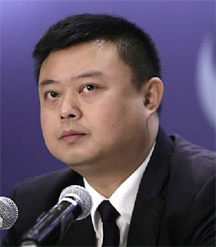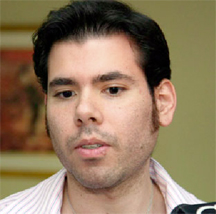Nicaragua’s $40 billion deal with a Chinese company to build a trans-oceanic waterway that will compete with the Panama Canal will either be Latin America’s most important economic project in more than a century or the biggest government scam in the region’s history.
There are many reasons to think it may be the latter. The big question, however, is why reputable US consulting firms — including McKinsey, McLarty Associates and former Transparency International anti-corruption crusader Ronald MacLean Abaroa — would be involved in this project if it were as shady as it looks.
 Nicaragua’s populist President Daniel Ortega signed the contract with 41-year-old Chinese businessman Wang Jing earlier this month without any public bidding, and despite the fact that Wang’s companies are not known to have any experience in canal building projects.
Nicaragua’s populist President Daniel Ortega signed the contract with 41-year-old Chinese businessman Wang Jing earlier this month without any public bidding, and despite the fact that Wang’s companies are not known to have any experience in canal building projects.
Wang has been chaperoned in Nicaragua by none other than Ortega’s 27-year-old son Laureano Ortega, raising suspicions that the Ortega family may be part of the deal. Laureano Ortega works for Nicaragua’s government investment promotion agency, Pro-Nicaragua, according to Nicaraguan press reports.
Brief debate
The agreement, which was passed by the Ortega-controlled Nicaraguan congress after less than 48 hours of public debate, gives Wang’s Hong Kong Nicaragua Canal Development Investment Co (HKND) a 50-year concession to build the canal, with an option to run it for an additional 50 years.
Critics say it’s a monumental surrender of Nicaragua’s sovereignty and that Wang will pretty much own the country.

“This is the biggest scandal in recent memory,” says Carlos Fernando Chamorro, publisher of Nicaragua’s Confidencial magazine. “While Panama held a public bidding for the expansion of the Panama Canal, and submitted it to a national referendum, here they hand-picked the winner and passed the law in one-and-a-half days.”
Latin American diplomats in Beijing tell me that China’s government says it has nothing to do with the project, and that Chinese officials are distancing themselves from it. US officials say they don’t know much about the plan.
“So far, it has not been transparent,” the top US State Department official in charge of Latin American affairs, Roberta Jacobson, told me.
But US consultants working for HKND say they have checked Wang’s background, and would not put their reputation on the line if he wasn’t legitimate — not even for the estimated $45 million that Wang is expected to pay just for the canal feasibility studies over the next year.
If there wasn’t a public bidding, it was because Nicaragua’s natural resources law allows the government to offer concessions to investors, HKND officials say. Besides, Nicaragua has tried for decades to find companies to invest in the project, without any success, they say.
Stephen Donehoo, a partner of McLarty Associates, the Washington DC consulting firm led by former Bill Clinton White House chief of staff Mack McLarty, says that “before taking this assignment, we checked him out to make sure that we could convince ourselves that he is not a front for the Chinese government, which we determined not to be the case.”
Donehoo added, “He is an entrepreneur who is seeing an opportunity, and is putting his own money at risk to do the feasibility studies and see if it works.”
Raising funds
HKND’s official spokesman MacLean Abaroa, a former Bolivian politician and anti-corruption expert who was one of the founders of the Transparency International advocacy group and later worked with the World Bank, told me that it’s in Wang’s interest to make the project transparent, because once the feasibility studies are done he will need to raise funds in international capital markets.

“Nobody is going to put money into a scam,” MacLean said. As for the role of Ortega’s son in the canal project, MacLean said that “Laureano Ortega’s involvement is in his official capacity as a member of Nicaragua’s investment promotion office, not as a private person. His job is to bring investments to the country.”
My opinion: This is still a very shady deal, signed by one of Latin America’s least democratic presidents, without public bidding, to a Chinese businessman nobody knows much about.
If Wang wants to make this work as a private venture and he is not a front man for China’s government, he will have to get Daniel Ortega to hold a public referendum — much like Panama did — about whether the project is legal, and economically, environmentally and socially sound.
Otherwise, there will be no other investors, and the biggest winners will not be Nicaraguans but US consulting firms, which are already making a bundle from Mr Wang’s project.
© The Miami Herald, 2013. Distributed by Knight Ridder/Tribune Media Services.









